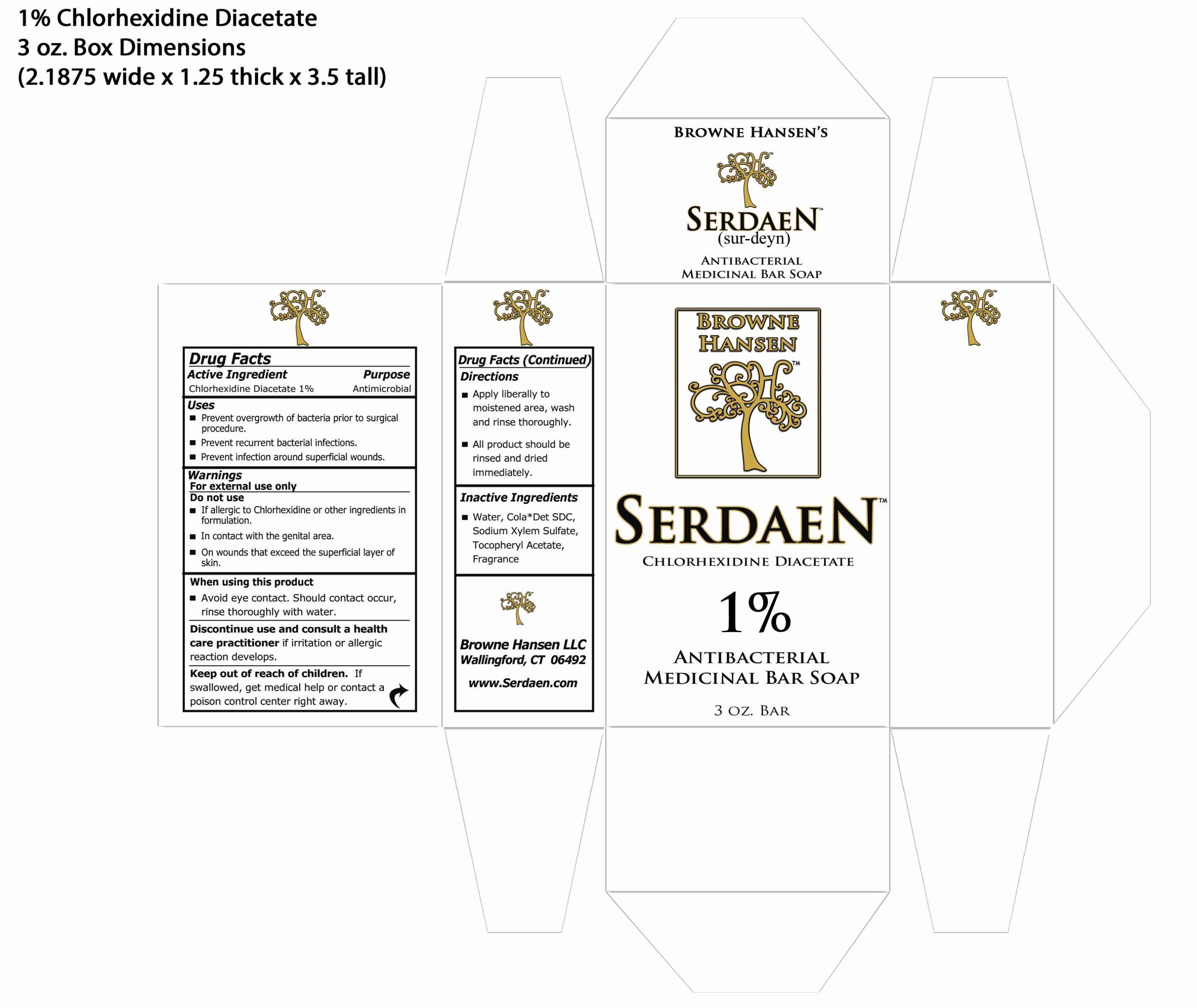Serdaen | Chlorhexidine Diacetate Soap while Breastfeeding

What is Serdaen | Chlorhexidine Diacetate Soap used for?
Brief: Antimicrobial
What are the risk associated with Serdaen | Chlorhexidine Diacetate Soap usage while breastfeeding? What precautions shall I take while using it in breastfeeding?

Serdaen | Chlorhexidine Diacetate Soap Breastfeeding Analsys
Chlorhexidine acetate while Breastfeeding
SafeIodine-free disinfectant which is widely use for skin, mouth, and, obstetric disinfection. It is preferred over iodine-based disinfectants in order to avoid high iodine exposure to the child in the neonatal and breastfeeding period that would pose a higher risk for thyroid dysfunction. Because of pharmacokinetic data (high molecular weight, high capacity for serum protein-binding and poor oral or gut absorption) significant excretion into breast milk is unlikely. Used for obstetrical purposes (vaginal or C-section wounds) even during birth or in the puerperal period, has failed to cause harm neither to the newborn nor the breastfed child. Although use in the nipple may not cause troubles to the breastfed infant (except one reported case in 1989) it is not considered to be a justified practice for prevention of mastitis. Any way, it is preferred to avoid use on the nipple, at least on a long-term basis. If used, wash the nipple thoroughly before nursing. List of Essential Medicines by WHO 2002: compatible with breastfeeding.
Serdaen | Chlorhexidine Diacetate Soap Breastfeeding Analsys - 2
Chlorhexidine acetate while Breastfeeding
CAS Number: 55-56-1
Chlorhexidine has been used vaginally or topically on the abdomen or perineum prior to delivery to prevent infection. No toxicity has been reported in breastfed infants and it has clearly less toxicity compared to povidone-iodine in these situations. Topical application of chlorhexidine to the breast before and after nursing did not appear to adversely affect the breastfed infants in one study. Use of chlorhexidine oral rinse by a nursing mother is unlikely to adversely affect her infant.
What if I already have used Serdaen | Chlorhexidine Diacetate Soap?
It is always a good idea to keep your healthcare provider or doctor informed about your drug usage during pregnancy and breastfeeding but if you have not informed your doctor about Serdaen | Chlorhexidine Diacetate Soap and have used it then do not panic as Serdaen | Chlorhexidine Diacetate Soap is mostly safe in breastfeeding and should not cause any harm to your baby.
I am nursing mother and my doctor has suggested me to use Serdaen | Chlorhexidine Diacetate Soap, is it safe?
Definitely, Serdaen | Chlorhexidine Diacetate Soap is safe in lactation for baby. No wonder your doctor has recommended it.
If I am using Serdaen | Chlorhexidine Diacetate Soap, will my baby need extra monitoring?
No extra baby monitoring required while mother is using Serdaen | Chlorhexidine Diacetate Soap
Who can I talk to if I have questions about usage of Serdaen | Chlorhexidine Diacetate Soap in breastfeeding?
US
National Womens Health and Breastfeeding Helpline: 800-994-9662 (TDD 888-220-5446) 9 a.m. and 6 p.m. ET, Monday through Friday
UK
National Breastfeeding Helpline: 0300-100-0212 9.30am to 9.30pm, daily
Association of Breastfeeding Mothers: 0300-330-5453
La Leche League: 0345-120-2918
The Breastfeeding Network supporter line in Bengali and Sylheti: 0300-456-2421
National Childbirth Trust (NCT): 0300-330-0700
Australia
National Breastfeeding Helpline: 1800-686-268 24 hours a day, 7 days a week
Canada
Telehealth Ontario for breastfeeding: 1-866-797-0000 24 hours a day, 7 days a week
